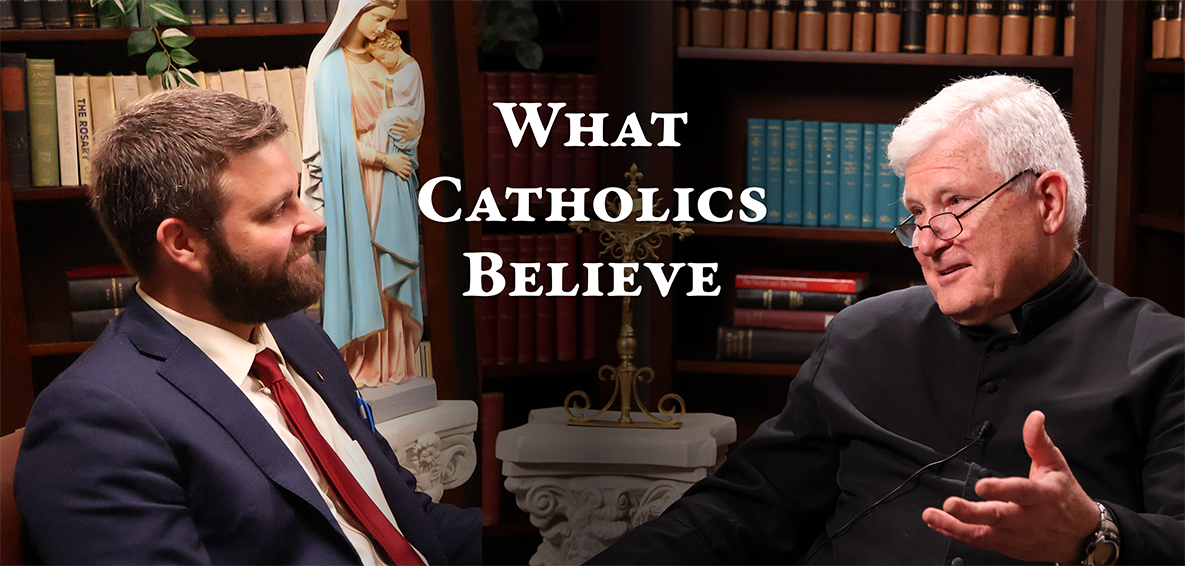Pope-Pourri: Concerning Francis' Credibility — Francis Finally "Answers " Archbishop Viganò's Letter

Cooks are familiar with the French term "pot-pourri" but they might not be aware of its literal meaning: rotten or corrupted pot.
On February 16, 2019, the Vatican announced that Theodore McCarrick, named a Cardinal by John Paul II on February 21, 2001, had been reduced to the lay state. The defrocking was due to credible accusations for immoral behavior over many years.
In an article dated May 29, 2019, on Catholic Culture website (CatholicCulture.org), entitled New interview, new revelations damage Pope's credibility, author Phil Lawler addresses Francis' incredible answers about the accusations made in Archbishop Carlo Maria Viganò’s public letter of August 25, 2018. In that letter, Viganò accused Francis of knowing about then-Cardinal Theodore McCarrick's grossly immoral activities, but doing nothing to stop him and being complicit in a cover-up. After having doggedly refused to address the accusations, Francis was finally induced to speak about them. Phil Lawler writes:
In his latest interview Pope Francis says that he does not remember whether or not Archbishop Vigano told him about Theodore McCarrick's … misconduct. He also insists that he knew "nothing, obviously, nothing, nothing" about McCarrick's misconduct. Those two claims do not sit comfortably side by side …
Archbishop Viganò, not mincing words, made his own position perfectly clear in responding to the new papal interview: 'What the Pope said about not knowing anything is a lie.'
So once again we find ourselves asking: Is Archbishop Viganò’s testimony credible? Back in September, when most of the dust had settled after the first explosion of the McCarrick scandal, I summarized the available evidence and found that it weighed heavily in the archbishop's favor. (Defenders of Pope Francis have preferred not to examine that evidence, instead questioning Archbishop Viganò’s motives.) Pope Francis, for his part, had refused to discuss the Viganò testimony, until during this new interview, Valentina Alazraki of the Mexican Televisa network told him that his silence had become burdensome to reporters, and he proceeded to unburden himself.
Coincidentally (or was it a coincidence?), on the same day that the Televisa interview was made public, important new evidence emerged, supplied by a cleric who could not easily be described as an enemy of the Pontiff. Msgr. Anthony Figueiredo, a former secretary to McCarrick, professed his “unswerving affection, loyalty, and support for Pope Francis,” even as he released a raft of information confirming important elements of the Viganò testimony. Msgr. Figueiredo revealed:
+ that in August 2008, McCarrick had received instructions from the Vatican, ordering him to remove himself from public life;
+ that McCarrick had acknowledged the disciplinary action and promised not to make any further public appearances;
+ that copies of the relevant correspondence should be readily available in the files of the Vatican’s Congregation for Bishops and those of the apostolic nuncio in Washington;
+ that the restrictions on McCarrick were known to Cardinal Wuerl, his successor in Washington and to Cardinal Bertone, the Vatican Secretary of State, among others;
+ that McCarrick had been forbidden to travel to Rome; and
+ that in spite of the Vatican restrictions, and despite his promise, McCarrick had continued to make public appearances, had visited Rome, and had acted as a Vatican representative to China, to Iran and Iraq, and elsewhere.
The Figueiredo files do not directly address the question of whether Archbishop Viganò told Pope Francis about the restrictions on McCarrick. But they do make it clear that the disciplinary action was a serious matter: the sort of topic that an apostolic nuncio (Viganò) would likely have discussed with a Pontiff (Francis) visiting the city where McCarrick lived.
But Pope Francis says that he does not remember such a conversation. Notice, again, that he does not deny that the conversation took place; he merely says that he does not recall it. That claim strains credibility—as does the claim of the Vatican press office that, in a transcript of the interview, the Pope’s professed lapse of memory was omitted until reporters called attention to the omission. (A summary article on the interview, posted on the Vatican News service, barely touches on the McCarrick affair, and does not mention the memory lapse.)…
Archbishop Viganò, in his original bombshell testimony, said that Pope Francis was aware of, and chose to ignore, the charges against McCarrick. It is surely relevant, then, that in his own newly released testimony, Msgr. Flgueiredo says that he made his evidence public only after attempting unsuccessfully, since last September, to bring that evidence to the attention of Pope Francis and other Vatican officials.”
[Phil Lawler has been a Catholic journalist for more than 30 years. He has edited several Catholic magazines and written eight books. Founder of Catholic World News, he is the news director and lead analyst at CatholicCulture.org]

